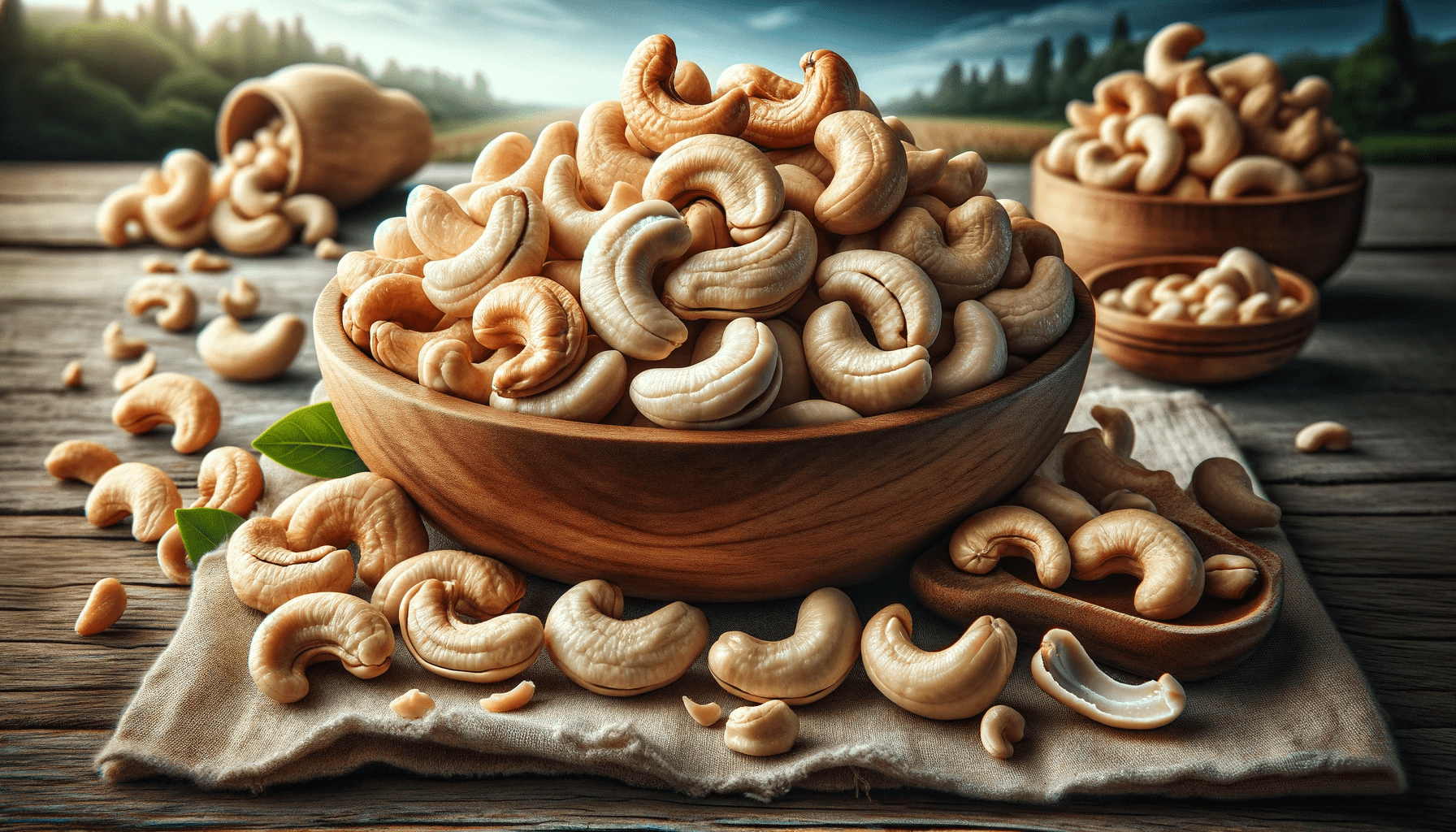Cashews, the kidney-shaped seeds that adorn the cashew apple, have been cherished across cultures for their delicate flavor and remarkable health benefits. Beyond their culinary versatility, cashews are a nutritional powerhouse, offering a rich array of vitamins, minerals, and healthy fats. This article delves into the science-backed benefits of cashews, from heart health and weight management to improved bone strength and mental health.
1. Cardiovascular Benefits:
Cashews are abundant in heart-healthy monounsaturated and polyunsaturated fats, which have been linked to reducing the risk of cardiovascular diseases.
- Cholesterol Reduction: A study in "The Journal of Nutrition" demonstrated that diets incorporating cashews significantly decreased LDL cholesterol and increased HDL cholesterol, highlighting their potential in cardiovascular disease prevention【1】.
2. Rich in Nutrients:
Cashews are a good source of several essential nutrients, including magnesium, phosphorus, zinc, and vitamin B6, contributing to various aspects of health and well-being.
- Bone Health: Magnesium, found abundantly in cashews, plays a vital role in bone formation by influencing the bone matrix and regulating calcium levels in bones. According to "Nutrients," magnesium intake is crucial for maintaining bone density and preventing osteoporosis【2】.
3. Weight Management:
Despite their high-fat content, cashews can be part of a healthy diet for weight management due to their fiber and protein content, which can enhance feelings of fullness and reduce overall calorie intake.
- Satiety and Metabolic Health: Research published in "Nutrition Research" found that consuming cashews could improve satiety and dietary quality without negatively impacting body weight or composition, making them a suitable snack for weight management strategies【3】.
4. Antioxidant Properties:
Cashews contain a spectrum of antioxidants, including lutein and zeaxanthin, which are crucial for eye health, and anacardic acid, which has been studied for its cancer-fighting properties.
- Oxidative Stress Reduction: A study in "Food Chemistry" highlighted the antioxidant capacity of cashews, suggesting they can mitigate oxidative stress, a key factor in chronic disease development【4】.
5. Diabetes Management:
The low glycemic index (GI) of cashews and their beneficial fat profile may aid in blood sugar regulation, making them a healthy choice for individuals with diabetes.
- Blood Sugar Control: According to "The American Journal of Clinical Nutrition," incorporating nuts like cashews into the diet can have favorable effects on glycemic control in patients with type 2 diabetes【5】.
6. Mental Health Benefits:
Cashews are rich in tryptophan, an amino acid that the body converts into serotonin, a neurotransmitter associated with mood regulation.
- Mood Enhancement: "Psychopharmacology" published findings that dietary intake of tryptophan can improve mood and decrease symptoms of depression and anxiety, underscoring the potential mental health benefits of cashews【6】.
7. Anti-inflammatory Effects:
The compounds in cashews may exert anti-inflammatory effects, contributing to the reduction of inflammation-related conditions.
- Inflammation Reduction: "The Journal of Nutrition" suggests that the monounsaturated fats in cashews can decrease inflammation markers, offering protective benefits against chronic inflammatory diseases【7】.
8. Culinary Versatility:
Cashews can be enjoyed raw or roasted, incorporated into savory and sweet dishes, or transformed into dairy-free alternatives like cashew milk and cheese, making them a versatile ingredient in a health-conscious kitchen.
9. Consumption Recommendations:
While cashews are undeniably nutritious, they should be consumed in moderation due to their calorie density. Opting for unsalted, raw, or dry-roasted varieties can maximize their health benefits while minimizing added fats and sodium.
Conclusion:
Cashews stand out as a nutritional gem in the world of nuts, offering a wealth of health benefits backed by scientific research. From supporting heart health and managing weight to bolstering bone strength and enhancing mental well-being, cashews can play a pivotal role in a balanced diet. Incorporating these nuts into your dietary regimen can contribute to a healthier, more vibrant life.
References:
- "The Journal of Nutrition," on the effects of cashews on cholesterol levels.
- "Nutrients," on the importance of magnesium in bone health.
- "Nutrition Research," on cashews, satiety, and weight management.
- "Food Chemistry," on the antioxidant capacity of cashews.
- "The American Journal of Clinical Nutrition," on nuts and glycemic control.
- "Psychopharmacology," on dietary tryptophan and mood regulation.
- "The Journal of Nutrition," on the anti-inflammatory effects of monounsaturated fats.
FAQ
Discover Cashews on the Amazon store : link

Leave a comment